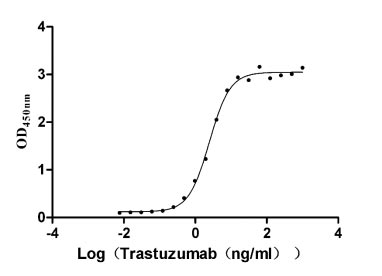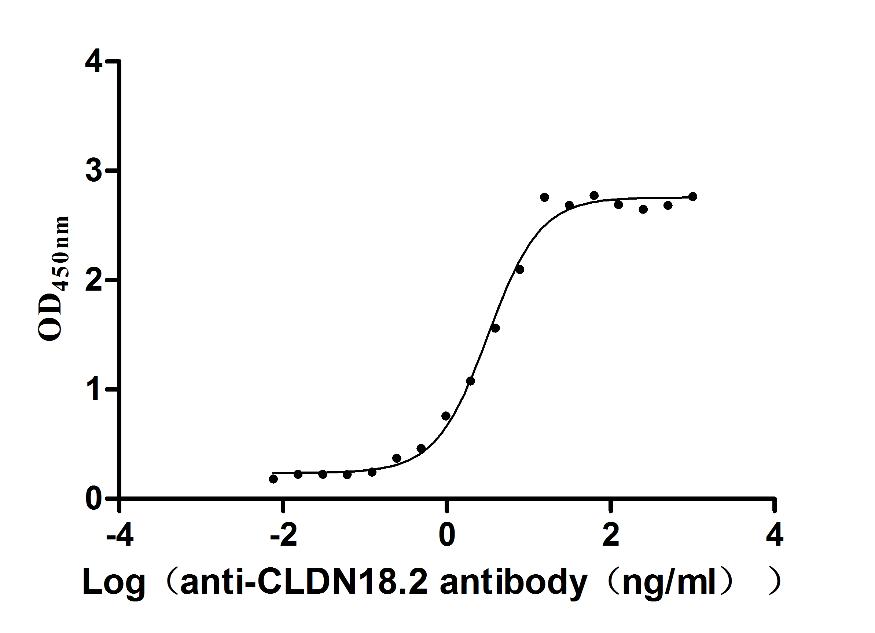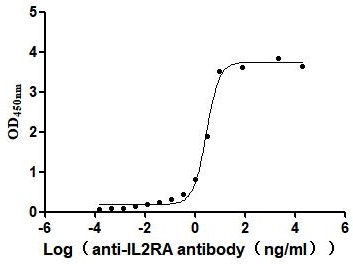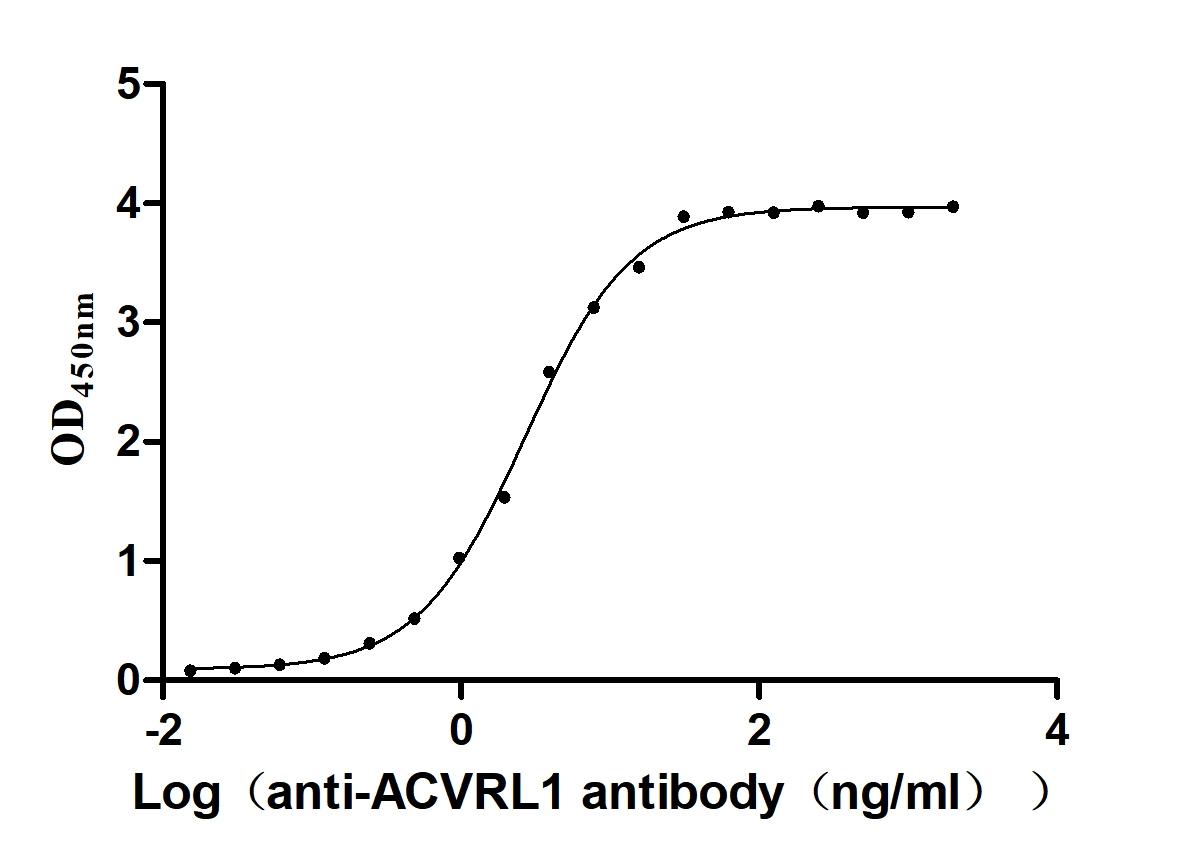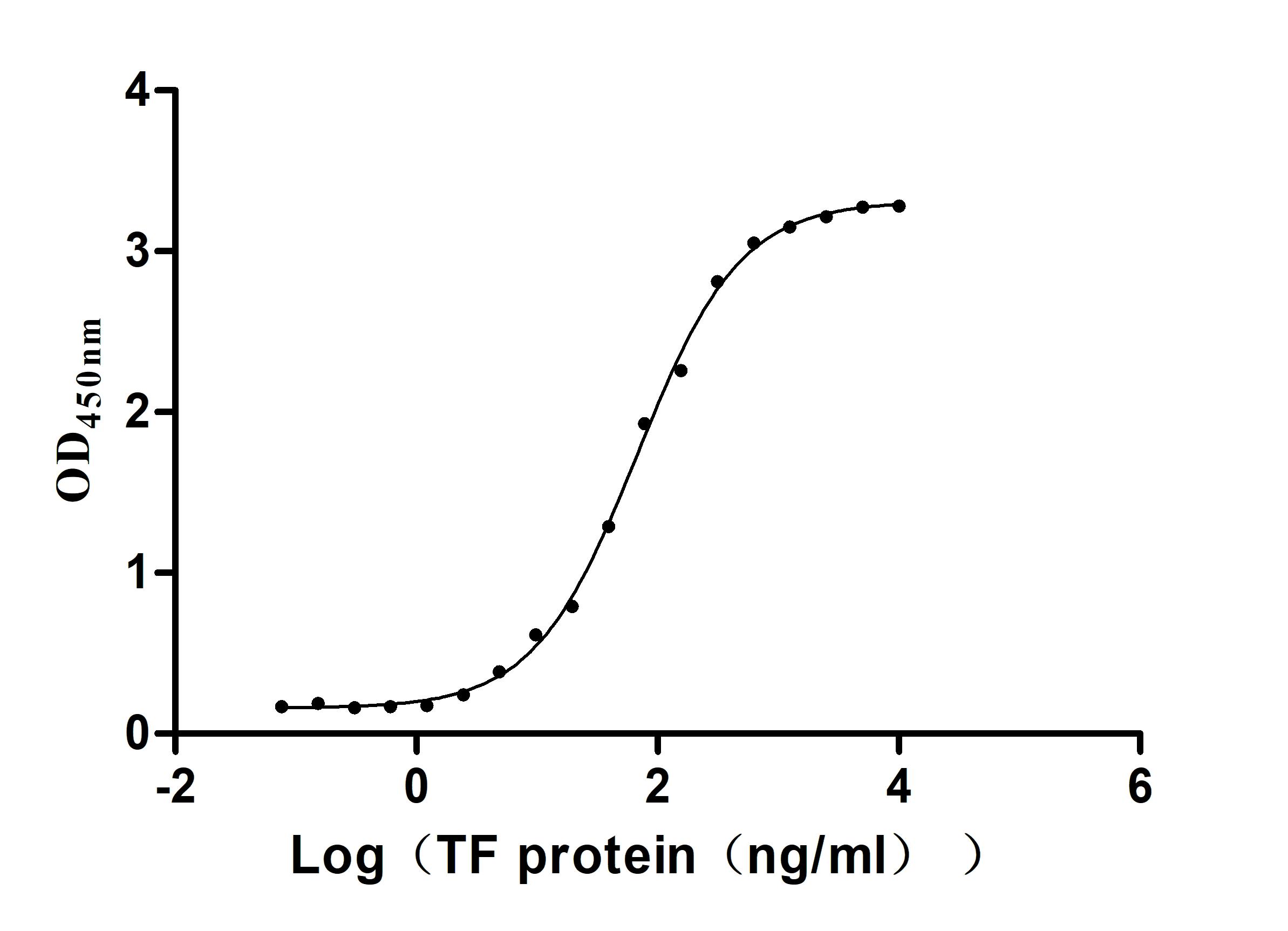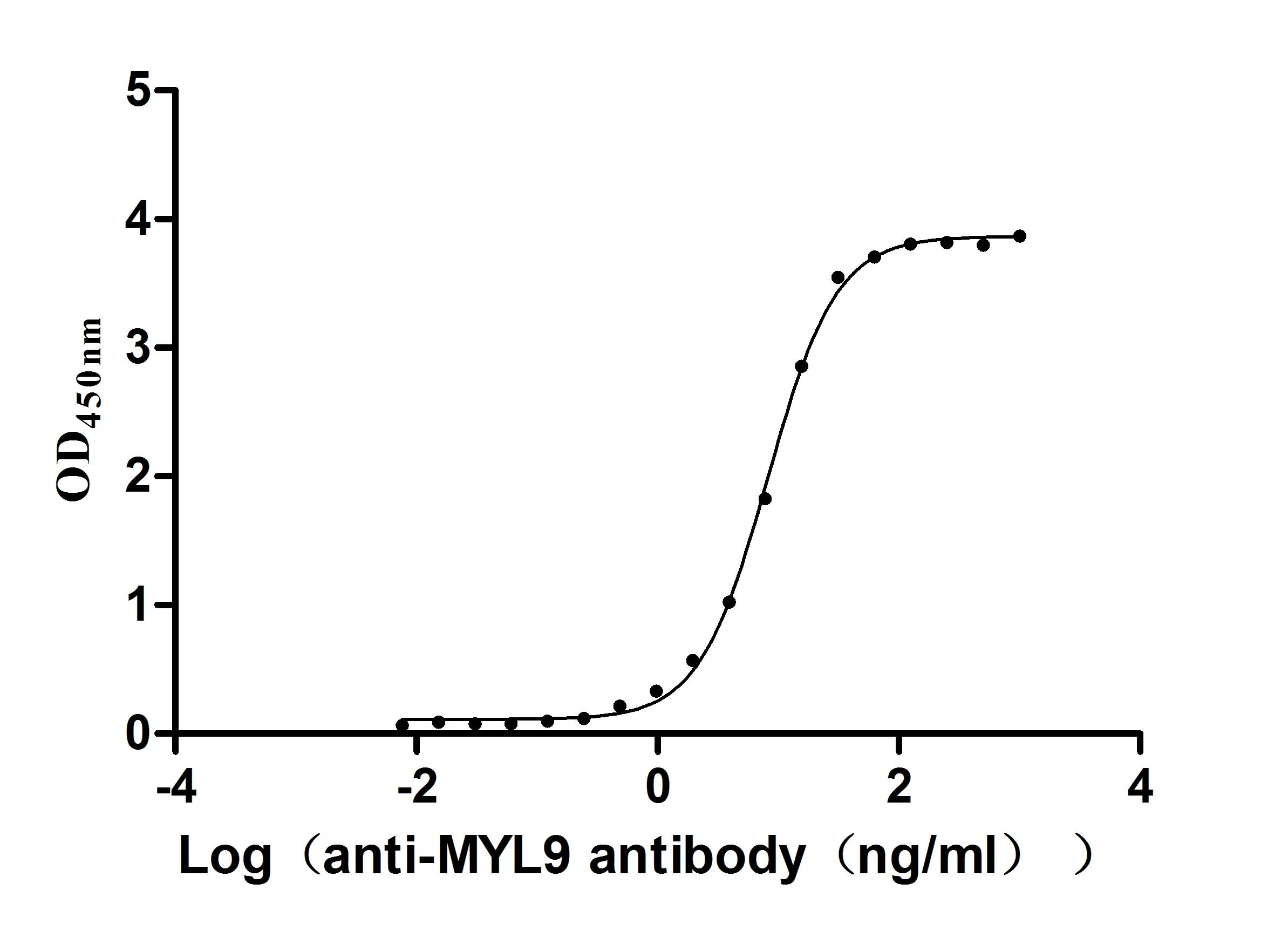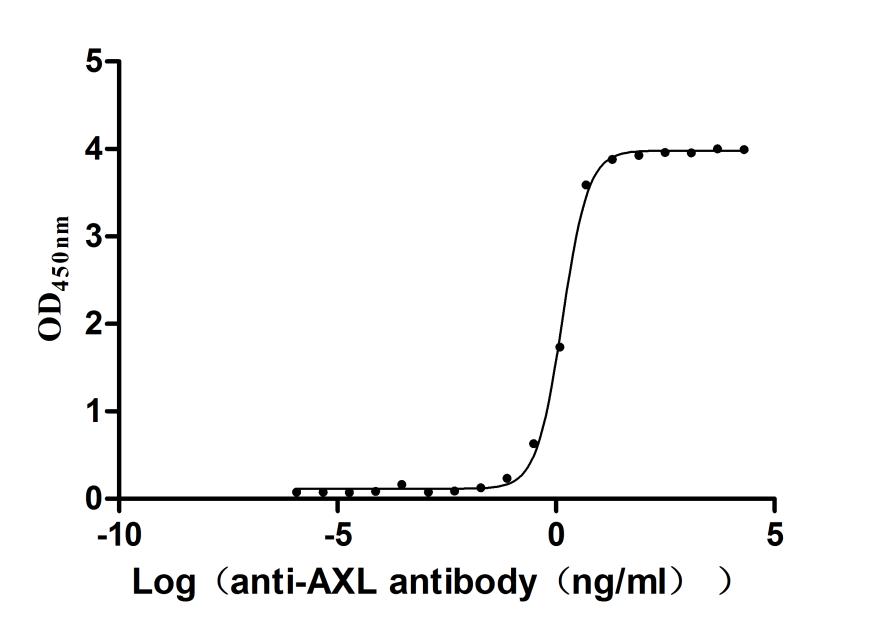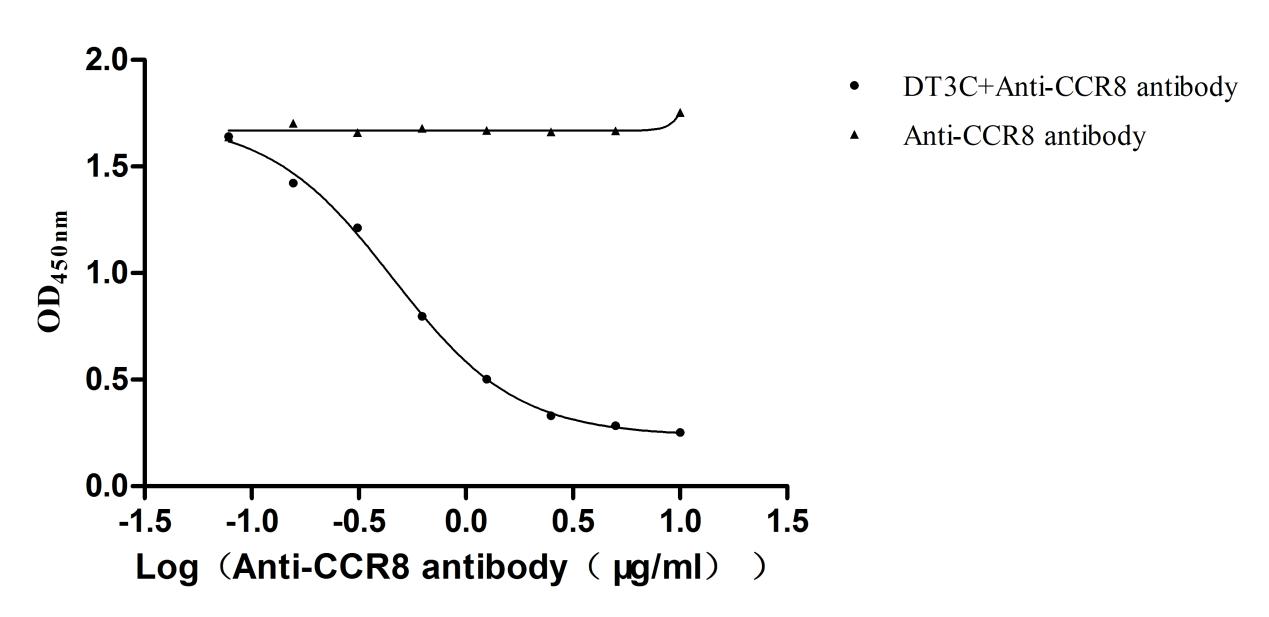Recombinant Human D-glucuronyl C5-epimerase (GLCE), partial
-
货号:CSB-YP009492HU
-
规格:
-
来源:Yeast
-
其他:
-
货号:CSB-EP009492HU-B
-
规格:
-
来源:E.coli
-
共轭:Avi-tag Biotinylated
E. coli biotin ligase (BirA) is highly specific in covalently attaching biotin to the 15 amino acid AviTag peptide. This recombinant protein was biotinylated in vivo by AviTag-BirA technology, which method is BriA catalyzes amide linkage between the biotin and the specific lysine of the AviTag.
-
其他:
-
货号:CSB-BP009492HU
-
规格:
-
来源:Baculovirus
-
其他:
-
货号:CSB-MP009492HU
-
规格:
-
来源:Mammalian cell
-
其他:
产品详情
-
纯度:>85% (SDS-PAGE)
-
基因名:GLCE
-
Uniprot No.:
-
别名:GLCE; KIAA0836; D-glucuronyl C5-epimerase; EC 5.1.3.17; Heparan sulfate C5-epimerase; Hsepi; Heparin/heparan sulfate:glucuronic acid C5-epimerase; Heparosan-N-sulfate-glucuronate 5-epimerase
-
种属:Homo sapiens (Human)
-
蛋白长度:Partial
-
蛋白标签:Tag type will be determined during the manufacturing process.
The tag type will be determined during production process. If you have specified tag type, please tell us and we will develop the specified tag preferentially. -
产品提供形式:Lyophilized powder
Note: We will preferentially ship the format that we have in stock, however, if you have any special requirement for the format, please remark your requirement when placing the order, we will prepare according to your demand. -
复溶:We recommend that this vial be briefly centrifuged prior to opening to bring the contents to the bottom. Please reconstitute protein in deionized sterile water to a concentration of 0.1-1.0 mg/mL.We recommend to add 5-50% of glycerol (final concentration) and aliquot for long-term storage at -20℃/-80℃. Our default final concentration of glycerol is 50%. Customers could use it as reference.
-
储存条件:Store at -20°C/-80°C upon receipt, aliquoting is necessary for mutiple use. Avoid repeated freeze-thaw cycles.
-
保质期:The shelf life is related to many factors, storage state, buffer ingredients, storage temperature and the stability of the protein itself.
Generally, the shelf life of liquid form is 6 months at -20°C/-80°C. The shelf life of lyophilized form is 12 months at -20°C/-80°C. -
货期:Delivery time may differ from different purchasing way or location, please kindly consult your local distributors for specific delivery time.Note: All of our proteins are default shipped with normal blue ice packs, if you request to ship with dry ice, please communicate with us in advance and extra fees will be charged.
-
注意事项:Repeated freezing and thawing is not recommended. Store working aliquots at 4°C for up to one week.
-
Datasheet :Please contact us to get it.
相关产品
靶点详情
-
功能:Converts D-glucuronic acid residues adjacent to N-sulfate sugar residues to L-iduronic acid residues, both in maturing heparan sulfate (HS) and heparin chains. This is important for further modifications that determine the specificity of interactions between these glycosaminoglycans and proteins.
-
基因功能参考文献:
- Results show that overexpression of Hsepi alone resulted in an unexpected increase in heparan sulfate (HS) chain length. A Hsepi point-mutant (Y168A), devoid of catalytic activity, failed to affect chain length. Moreover, the effect of Hsepi overexpression on HS chain length was abolished by simultaneous overexpression of 2OST. PMID: 27511124
- The obtained data suggest an involvement of GLCE rs3865014 in breast cancer development. Heterozygous AG genotype might be a risk factor for breast cancer susceptibility in Siberian women and is associated with aggressive ER-negative and triple-negative cancer subtypes. PMID: 28734894
- The GLCE gene polymorphism rs3865014 appears to have biological relevance in human pathophysiology. PMID: 27699767
- C5-epimerase and 2-O-sulfotransferase in association generate extended domains of consecutive GlcNS-IdoA2S Sequence. PMID: 25594747
- GLCE may be used as a potential model to study the functional role of intratumor cell heterogeneity in prostate cancer progression. PMID: 24403231
- activation of angiogenesis as a main molecular mechanism of pro-oncogenic effect of GLCE in prostate cancer. PMID: 24264315
- positive correlation between miRNA-218 and GLCE mRNA, and negative correlation between miRNA-218 and GLCE protein levels in breast tissues and primary tumors in vivo, supporting a direct involvement of miRNA-218 in posttranscriptional regulation of GLCE PMID: 22968430
- Chondroitin-glucuronate C5-epimerase is a potential candidate for tumour antigen with immunogenicity and the peptides derived from this antigen could be useful in hepatocellular carcinoma immunotherapy. PMID: 22830596
- A correlation was observed between D-glucuronyl C5-epimerase (GLCE), TCF4 and beta-catenin expression in breast cancer cells and primary tumors, suggesting an important role for TCF4/beta-catenin in regulating GLCE expression both in vitro and in vivo. PMID: 22805760
- The biphasic mode of C(5)-epi offers a novel mechanism to regulate the biosynthesis of HS with the desired biological functions. PMID: 22528493
- Loss of D-glucuronyl C-5 epimerase is associated with small-cell lung cancer. PMID: 21654676
- SNPs in GLCE are associated with triglyceride and HDL-C levels in Turks, and mouse studies support a role for glce in lipid metabolism. PMID: 21488854
- The regulation of GLCE expression by 2 cis-acting elements of the beta-catenin-TCF4 complex located in the enhancer region of the promoter are reported. PMID: 15853773
- in 82-84% of human breast tumors there is either downregulation or loss of D-glucuronyl C5-epimerase mRNA expression and significant decrease of the protein content PMID: 17985344
显示更多
收起更多
-
亚细胞定位:Golgi apparatus membrane; Single-pass type II membrane protein.
-
蛋白家族:D-glucuronyl C5-epimerase family
-
数据库链接:
HGNC: 17855
OMIM: 612134
KEGG: hsa:26035
STRING: 9606.ENSP00000261858
UniGene: Hs.183006
Most popular with customers
-
Recombinant Human Receptor tyrosine-protein kinase erbB-2 (ERBB2), partial (Active)
Express system: Mammalian cell
Species: Homo sapiens (Human)
-
Recombinant Macaca fascicularis Claudin (CLDN18)-VLPs (Active)
Express system: Mammalian cell
Species: Macaca fascicularis (Crab-eating macaque) (Cynomolgus monkey)
-
Recombinant Human Interleukin-2 receptor subunit alpha (IL2RA), partial (Active)
Express system: Mammalian cell
Species: Homo sapiens (Human)
-
Recombinant Human Serine/threonine-protein kinase receptor R3 (ACVRL1), partial (Active)
Express system: Baculovirus
Species: Homo sapiens (Human)
-
Recombinant Human Serotransferrin(TF) (Active)
Express system: Mammalian cell
Species: Homo sapiens (Human)
-
Recombinant Human Myosin regulatory light chain 12B(MYL12B) (Active)
Express system: E.coli
Species: Homo sapiens (Human)
-
Recombinant Human Tyrosine-protein kinase receptor UFO(AXL),partial (Active)
Express system: Mammalian cell
Species: Homo sapiens (Human)
-
Recombinant DT3C (Diphtheria toxin & spg 3C domain) for Antibody Internalization Assay (Active)
Express system: E.coli
Species: N/A


